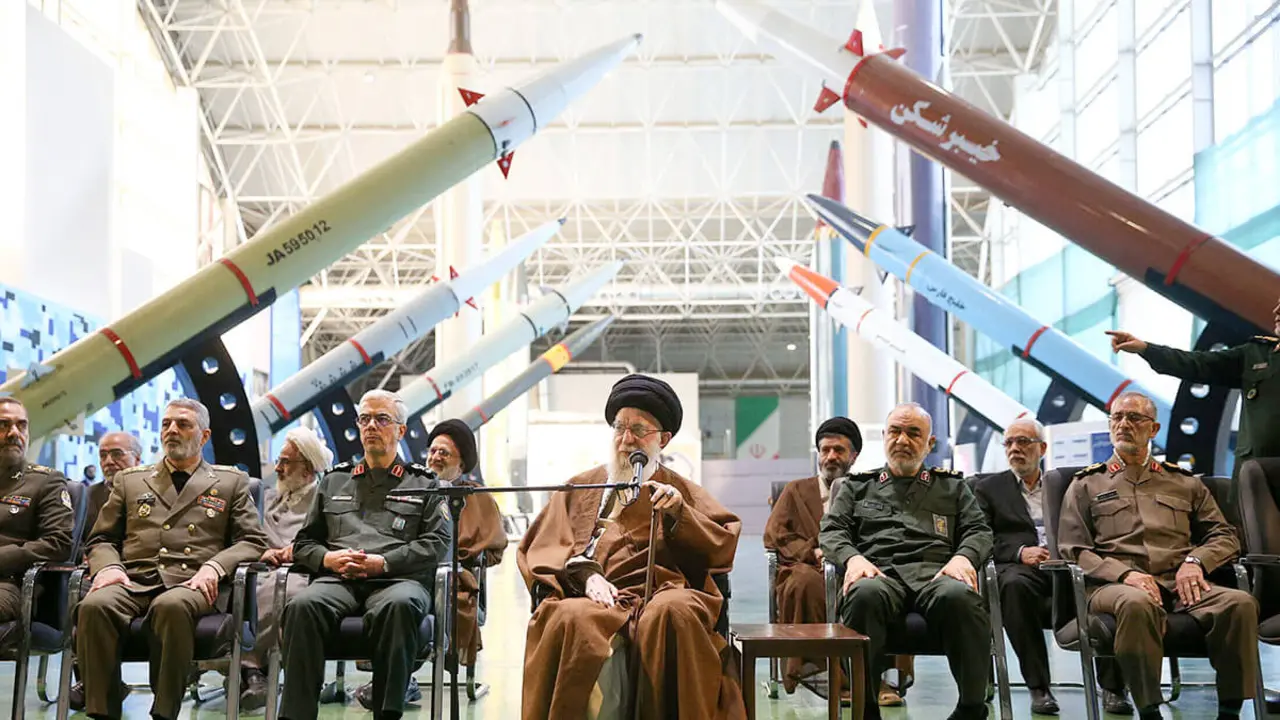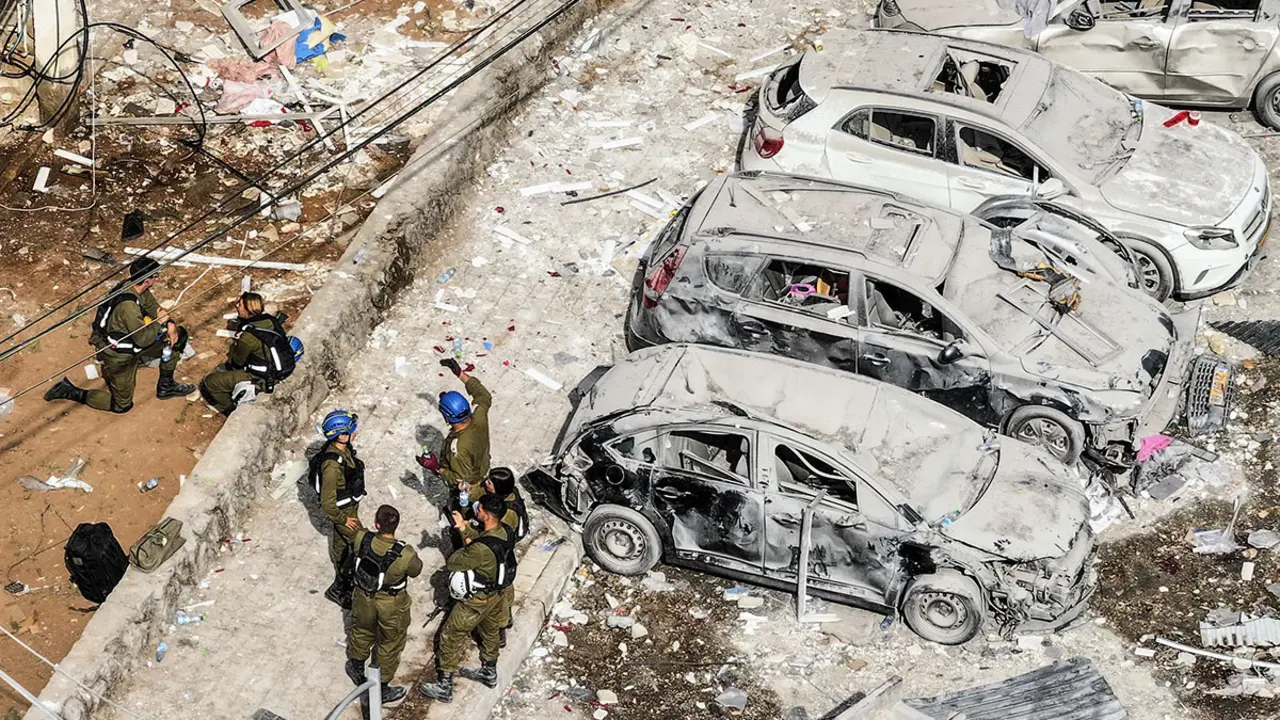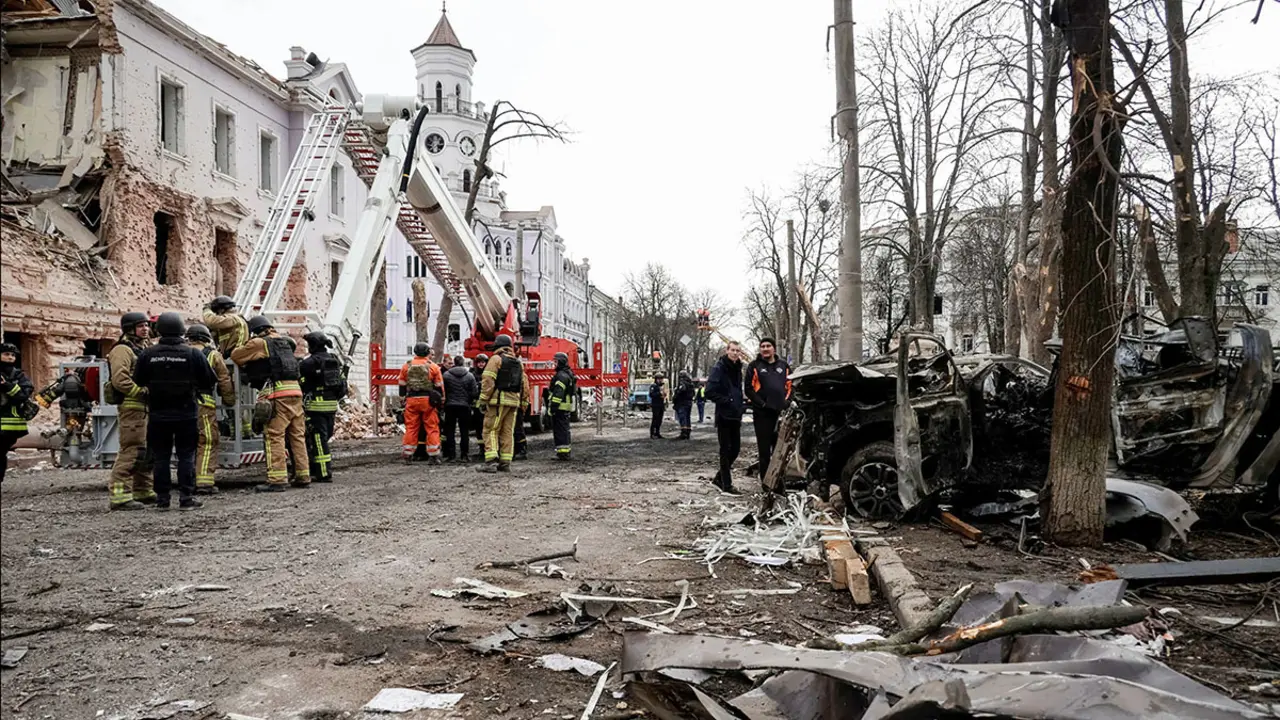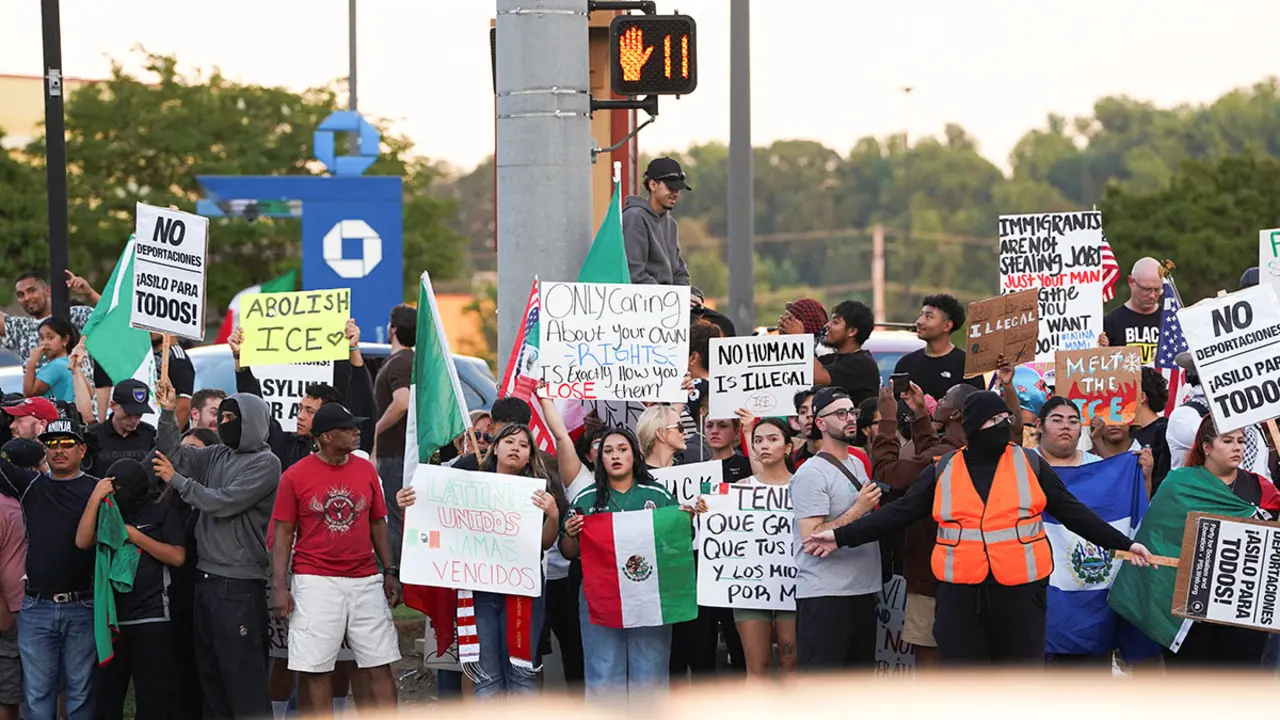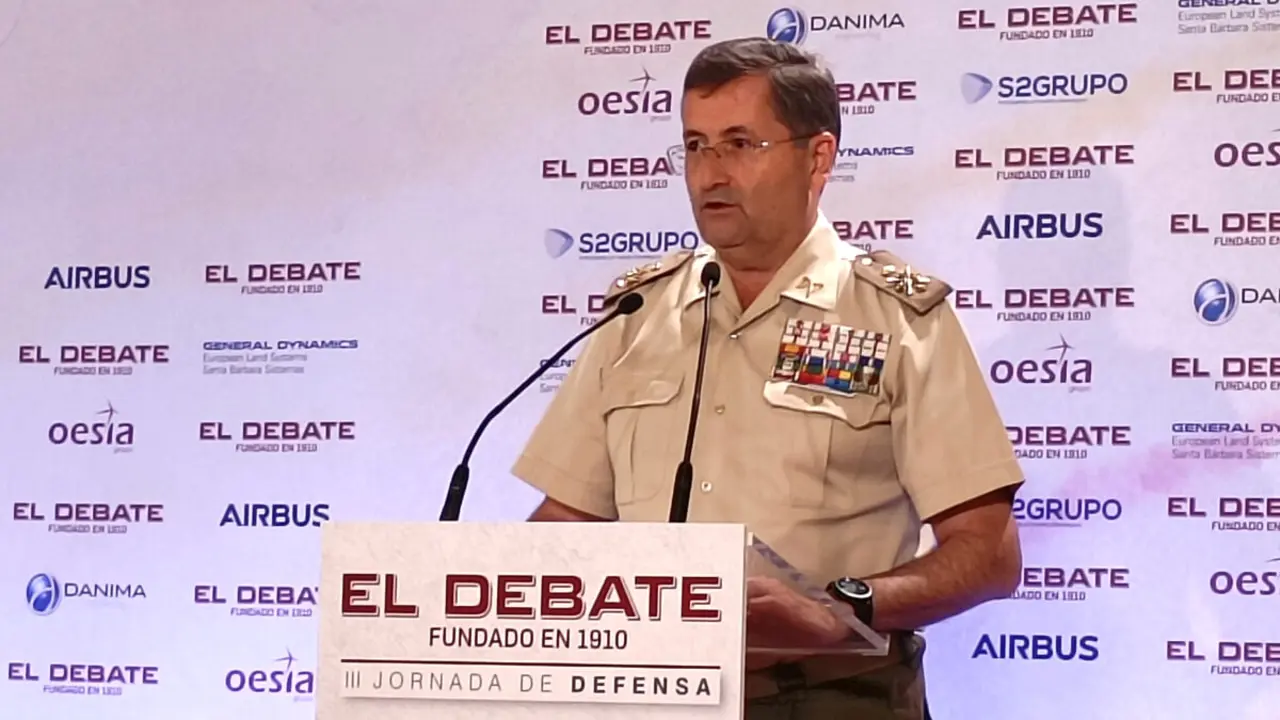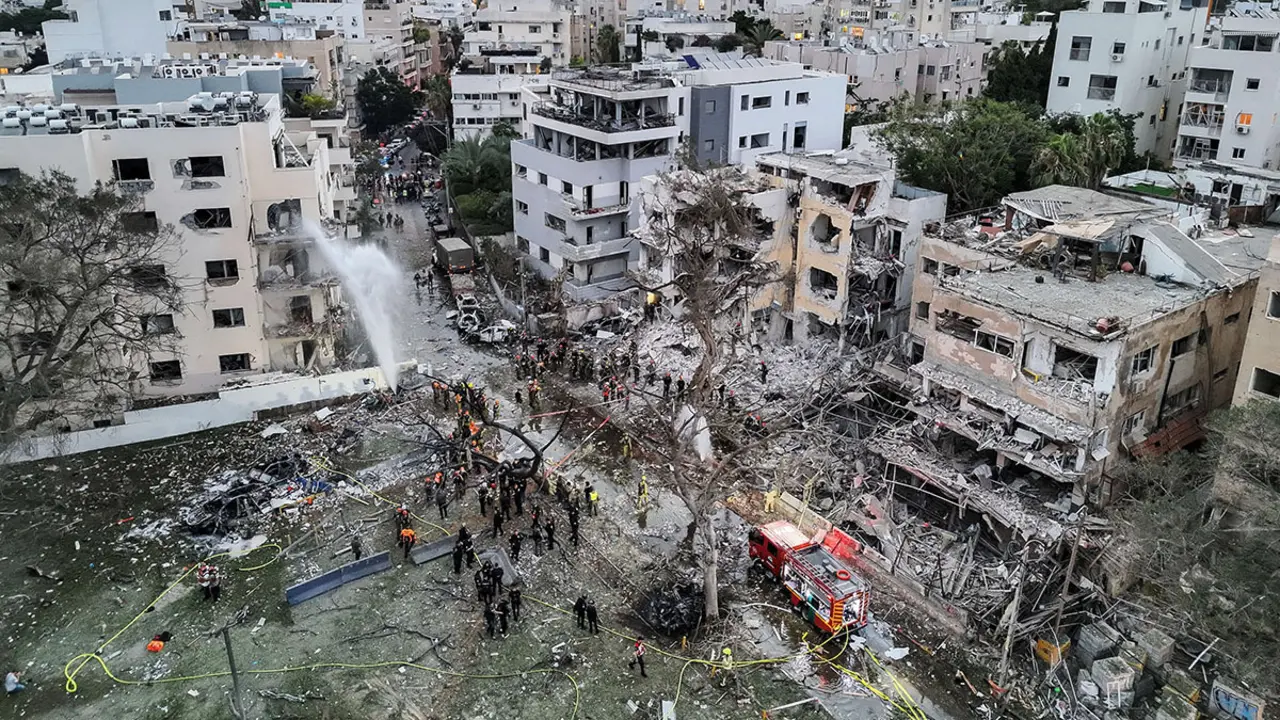Ceasefire between Israel and Hamas cracks down

Israel is reliving the tense moments that preceded 11 days of hostilities between the Israeli army and Hamas. The March of the Flags, which was postponed on 10 May as a result of the open conflict between Gaza and the Hebrew country, has once again revealed the atmosphere of tension within the country. This parade, which commemorates the occupation of East Jerusalem by Israeli settlers during the Six-Day War, has shaken the fragile ceasefire that Hamas and Israel are maintaining for the time being.
The Damascus Gate in the heart of Jerusalem's Old City, which gives access to the Muslim Quarter, was shielded from the imminent arrival of thousands of Jewish extremists who shouted "death to the Arabs" through the streets of the city in the face of a counter-protest by Israeli Arabs. This time the March of Flags took a different route than usual to avoid open clashes between the Arab population and the Jewish demonstrators.

The March of Flags, whose route has been modified to avoid passing through Muslim-majority areas, has been interpreted as a challenge to the newly formed coalition government with the ultra-nationalist Naftali Bennet as prime minister. Benjamin Netanyahu, now leader of the opposition and previously prime minister for 12 years, decided last week to postpone the march for a second time to coincide with the first days of the new government.
The march predictably sparked clashes between the ultra-nationalist demonstrators and the Arab population, resulting in the arrest of 17 Palestinians and 33 others injured by Israeli security forces, according to the Red Crescent. A spokesman for the Israeli police also said that two officers were injured during the clashes, in which Palestinian youths threw stones at police officers.

Hamas had already warned that it would respond if the march, which it called a "provocation", took place. Hamas, which has been the main defender of the Arab population in Jerusalem during the recent clashes that have resulted in the 11-day-long conflict between the Gaza Strip and the Hebrew country, broke the truce early this morning in retaliation for the controversial March of the Flags. According to the Efe news agency, Hamas sympathisers launched dozens of incendiary balloons into Israel, causing around 20 fires in open fields in communities near the border.
In response to this attack, the Israeli army again deployed its artillery and responded in the early hours of yesterday morning by launching several air strikes on the enclave. According to the Israel Defence Forces (IDF) itself, the missile strikes targeted military installations belonging to the al-Qassam Brigades, the armed wing of the Islamic movement, and so far no casualties have been reported. "The IDF is prepared for all scenarios, including the resumption of hostilities, in the face of continued terrorist acts from the Gaza Strip," the IDF spokesman said in a statement.

Hamas described the new attack as a "failed attempt to stop the solidarity and resistance of our people with the Holy City". The resistance movement also described the day as "confirmation" of the deterrent situation after the 11-day standoff, as Hamas said Israel had to change flight routes and the route of the March of Flags, as well as intensify the deployment of the Iron Dome due to concerns about possible rocket fire from the Strip. The ceasefire appears increasingly fragile as tensions between the two sides rise, and Hamas also blames Israel for blocking the monthly injection of money from Qatar. For its part, Israel wants to make any progress in negotiations conditional on a prisoner exchange.

Both Israel and Hamas have warned that the Egyptian-mediated ceasefire was fragile, something that became evident in yesterday's clashes. According to the daily Hareetz, Egyptian intelligence services are said to have pressured Hamas leaders to avoid escalation. For its part, the new coalition government finds itself in a somewhat awkward situation.
The centrist Yair Lapid, newly appointed foreign minister and a key player in the formation of Israel's new government, condemned on his Twitter account "the use of the Israeli flag by extremist elements amid hatred and racism". "This is neither Jewish nor Israeli, this is not what the flag symbolises". But with just two days to go before the formation of the new government, the first obstacles are beginning to emerge.

Naftali Bennet, the new prime minister, cannot afford to show restraint in the face of Hamas violence when Netanyahu, now leader of the opposition, has labelled him a "phony" and a "liar" for joining a "dangerous left-wing government". Although the self-appointed "Government of Change" proposed a different approach in its relationship with the Arab minority, yesterday's attack by the Israeli army has made it clear that the relationship with Hamas and the Gaza Strip will follow the same hard line as under the previous administration.

